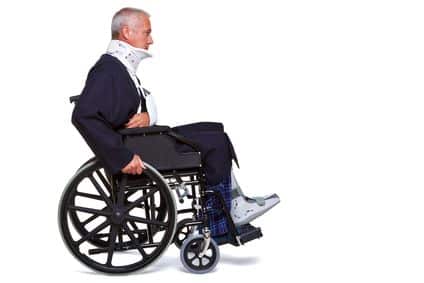Severe work injuries often cause problems regarding suitable housing and vehicles. Back, leg, and neck injuries can make it difficult for an injured worker to get around.
Sometimes, these injuries require that injured workers use a wheelchair, scooter, or other assistive device. Using these devices inside houses and other buildings can often be difficult. Sometimes, it can be impossible.
So, what happens when an injury at work in Georgia makes your house, apartment, or other dwelling unsuitable?
Common issues that make housing unsuitable
Several factors can cause a house to be unsuitable for use of a wheelchair or scooter. First, entrances to houses often require going up steps. A wheelchair or scooter cannot safely do this. Stairs inside a house cause problems as well, unless there is an elevator.
Doorways are another common issue. They may not be wide enough to accommodate a scooter or wheelchair. This can especially be the case in older homes. Also, many trailers and other modular homes have doorways that may not accommodate wheelchairs and scooters.
Bathrooms also cause problems since they may not be handicapped accessible, Toilets, showers, and bathtubs can be difficult to use. Also, there is often not enough room to allow a wheelchair or scooter to turn around.
 What happens if my house is unsuitable
What happens if my house is unsuitable
If your house becomes unsuitable because of your work injury, your employer and their workers’ compensation insurance company should have to pay the cost associated with putting you in a suitable house. In a straightforward situation, these costs would include the increased rent of moving from an unsuitable apartment to a suitable apartment. However, the solution is not always that simple. If you own or are buying your home, does the insurance company have to buy you a new house?
Modifying an unsuitable house
The first question will be whether your home could be affordably modified to make it suitable. Maybe the unsuitable bathroom can be modified to accommodate a wheelchair. Maybe a ramp could be put in to allow a scooter to get into the house. If so, the insurance company will probably be responsible for paying the cost of the modifications to make the house suitable in your Georgia workers’ compensation claim.
What if my house cannot be modified
If the house cannot be modified, then the answers are a lot more complicated. It is our belief that the insurance company has to pay the costs associated with suitable housing.
“Suitable housing” certainly includes physical suitability but there may be other suitability issues to consider as well. For example:
- If you currently live in the country, can the insurance company put you in a suitable house in the city?
- Can they move you from a home to an apartment?
- Can they make you sell your current house?
- Must the housing be able to accommodate children or grandchildren?
The answers to these questions and a number of others are currently unclear. The Managed Care and Rehabilitation Division of the Georgia State Board of Workers’ Compensation has published a paper that discusses many of the issues that arise when housing suitability is addressed. The exact details of your case will matter a lot in determining what housing is suitable.
Can “suitable housing” be settled?
Because of the variety and complexity of the different issues, housing suitability is sometimes resolved by a stipulation and agreement settling the “suitable housing” portion of your case. It is important to understand that you never have to settle housing (just as you never have to settle your workers’ compensation case).
A housing settlement is usually an agreement to accept a certain amount of money from the insurance company. In exchange, you give up the right to make workers’ compensation pay housing costs or other issues associated with housing in the future.
Settlements are almost always final. This means you cannot go back and change things.
Because of that, it is important to consider any settlement in your workers’ compensation case very seriously because the documents you sign in settlement are going to give away some or all of your workers’ compensation rights. You need to understand what you are giving away. When you are settling housing, you also need to consider all the ways your work injury will probably affect you in the future.
Because of the complexity of housing and transportation issues, you should at least consult with an attorney specializing in workers’ compensation before seriously considering any settlement of a housing or transportation issue.
 What happens if my house is unsuitable
What happens if my house is unsuitable








